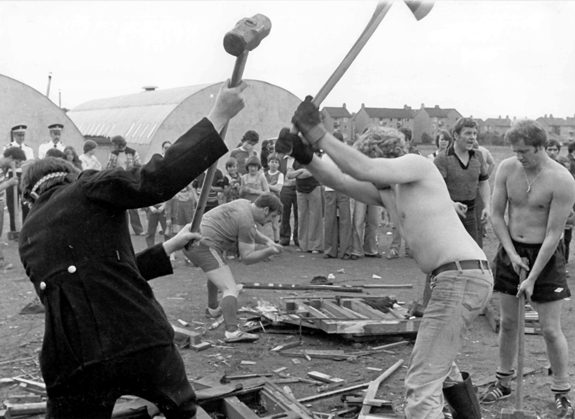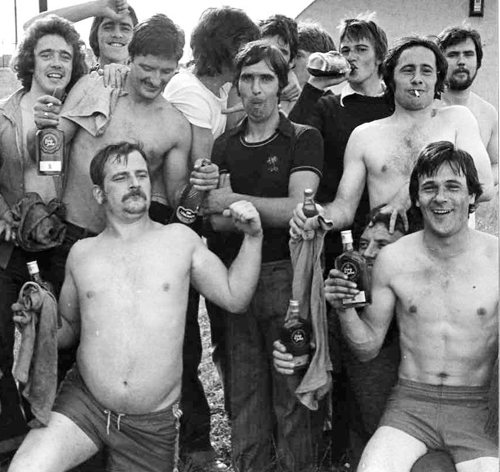
FARMINGTON CORNER
A continuing tale of life in the boonies
No. 306
Poets who matter: No. 13 – Percy Bysshe Shelley
ROCHESTER - Is a bag of old leaves held in greater esteem in this city than poets? Put your money on the leaves, folks.
Dead vegetation is currently adorning the front page of City Hall’s official website www.rochesternh.net and it’ll be there until the annual leaf pickup is over in mid-November. Thus, it falls to Farmington Corner to publicize the hunt for Rochester Poet Laureate No. 2 to replace No. 1, Jennifer White, by the end of the year.
In this respect there is very good news. Following a meeting of a poet laureate selection committee earlier this month, the controversial background check requirement has survived. The word "criminal" has been dropped, but this, dear reader, is a darned good thing, for it has the potential to widen the scope of the background inquiry. Whereas before, checking was merely confined to criminal activity, now the reins are off. We on the committee might even be able to secretly monitor the applicants’ telephone calls. Why not? Everybody else in government can.
Would we really want a vegan poet, for example, rather than a solid, dependable meat-eater? A surreptitious background check is your man, there. Or, suppose an appointed poet laureate subsequently churned out verses extolling peace, as far too many poets seem to be doing. Better have some sleuth work now, than be embarrassed later. Remember, classically, that Odin had no trouble being both the god of poetry and the god of battle and death.
Oddly enough, though, this week’s poet who matters, Percy Bysshe Shelley, got booted out of Oxford for writing against war after a journalist was jailed for spilling the beans on a disastrous military expedition. Even odder, Shelley was a vegetarian, just a glass of milk short of veganism.
I was reminded of Shelley the other day when Rochester police revealed that they are going to pour money into a rap lab at the high school to help students create the conditions where poetry and music collide, usually with serious injury to both.
Back in the 1970s, as a Glasgow police officer, I ran an operation based in a rugged building constructed by the Army for the gangs of a massive housing estate called Easterhouse. The walls of the building, called the Project, sometimes echoed with music of the most awful kind, and on such evenings I would conjure up lines of Shelley as an antidote.
To bolster funds provided by grants and charitable donations, shortly after taking over the Project in 1975, I built flashing light boards, set up oil wheel projectors and a rotating glass ball, and bought a strobe light. Then the doors were opened every Friday night for a discotheque, to which the Drummy gang came in large numbers, the Aggro in cautious trickles and the Den Toi not at all.
The Bay City Rollers were popular at that time, and soon after, the Saturday Night Fever and Bee Gees mania hit, ensuring boisterous crowds. Some gang boys didn’t dance though, preferring to lurk in surly knots in corners. Then Punk and the Sex Pistols arrived. What a liberator! Sid Vicious, it seems, understood them, and when he and Johnny Rotten screamed out "Pretty Vacant," so did the hitherto misfits, now identified by their black plastic bag shirts, as they pogoed in a clump, occasionally faking head butts on each other.
I thought of Shelley’s opening lines of Music:
I pant for the Music which is divine,
My heart in its thirst is a dying flower;
Pour forth the sound like enchanted wine,
Loosen the notes in a silver shower.
Then on that memorable Friday, Feb. 2, 1979, a buzz went round the Project hall, and a dozen punks suddenly sifted out from the other dancers, and disappeared into the toilets. Fearing for the plumbing fixtures, but also curious, I followed them in and was unexpectedly met with a scene of lamentation.
"Aw, naw!" cried the wailers. "Fuckin' Sid Vicious is fuckim' deid. Aw, naw! Aw, naw!"
Heart-broken punks were bashing their heads into cinder block walls as tokens of grief. I suggested that they set their plastic bags on fire in an act of self-immolation that would echo all over Glasgow. This sympathetic remark was misconstrued and a couple of punks made a dash to rip the pipes off the toilet wall.
To be fair, Sex Pistols bass player Sid Vicious, although musically incompetent, gave courage to Scotland’s most alienated teenagers. Thanks to him, they were able to express themselves on the dance floor by holding their bodies and arms stiff and jumping up and down on the same spot, while wearing garbage bags.
Thus Sid deserves a eulogy of Shelley’s lines, contained in With a Guitar, To Jane (not Nancy).
From which, beneath Heaven’s fairest star,
The artist wrought this loved guitar,
And taught it justly to reply,
To all who question skillfully,
In language gentle as thine own;
The Sex Pistols had their emulators, and one such cacophonous ensemble was homegrown in Easterhouse. The manager of this band was the lead singer’s mother, she who managed to talk me into the blunder of hiring them for a dance.
They were so awful that even the black arm-banded punks on the dance floor, still in mourning for Sid, were hurling abuse, and when the lead singer tried to win them over by smacking his guitar against a wall and bursting a panel, I threw them out, mother and all. Because it was the Easterhouse Project, the national press, sniffing a story, was on the phone next day, and come Monday it was plastered in the Scottish Daily Record, with me, Constable Nolan, telling the band to do music a favor and go break rocks in a quarry, and the mother waxing ferociously indignant.
Shelley, speaking on her behalf in To The Lord Chancellor, said:
I curse thee! By a parent’s outraged love,
By hopes long cherisht and too lately lost,
By gentle feelings thou couldst never prove,
By griefs which thy stern nature never crost.
Oh, boy!
My most memorable musical experience, though, was an al fresco affair, enacted on the wasteland adjacent to the Project. It was the Great Piano Smashing Competition.
Held on a summer’s afternoon, the piano smashing was the grand finale of a contest between a team of firemen, a team of policemen, and two teams entered by the Drummy. There were rounds of tug-o-war, greasy pole pillow fights and seriously contested bouts of this and that, but the crowd of several hundred people had really come to witness the simultaneous destruction of four upright pianos, donated to the cause from various church basements in an age when the clergy were switching to electronic organs.
Each team had a sledgehammer and a double-edged axe, and was required to smash their piano into pieces small enough to pass through a toilet seat suspended from a rope.
The rivalry was unbelievably intense, especially between the police and firefighters as the former had just been granted a pay hike by Glasgow Corporation, while the latter’s claim had been rejected. The firefighters were strongly favored to win, given their expertise with bursting into blazing buildings, but unluckily, they had been given an iron-framed, rather than a wooden-framed piano.
What I recall most clearly is the noise. Four large musical instruments all being bludgeoned to death at once leaves an indelible mark not just on the ear but also on the soul. Someone likened the din to church bells going through a threshing mill. It was vital, at the time, to remind oneself that in order to express adoration for music, paradoxically, it was necessary to obliterate it.
Shelley knew this. Take his poem, Death:
All things that we love and cherish,
Like ourselves must fade and perish,
Such is our rude mortal lot –
Love itself would, did they not.
This very verse, indeed, may well provide comfort and succor to Rochester Police Department, as they, in turn, abet the murder of music in their forthcoming rap lab.

Photo courtesy of Dougie Carmichael
Glasgow Police, foreground, and the Easterhouse Drummy, background, make steady progress in a piano-smashing contest.

Photo courtesy of Dougie Carmichael
The Drummy (circa 1978), captained by Arthur McGill, win the Easterhouse It's a Knockout Contest against teams of firemen and policemen, and capture the prize bottles of whisky. Weel done, Cutty Sark.
October 13, 2007